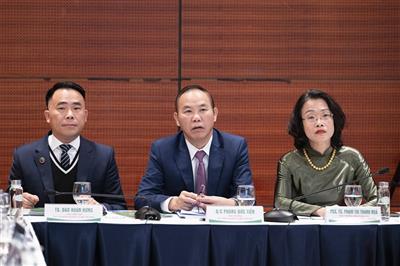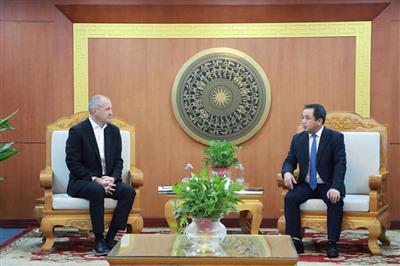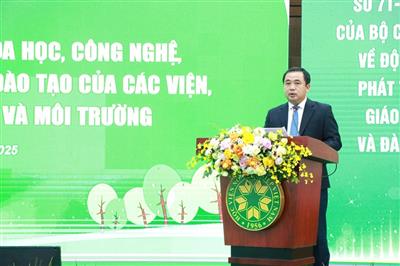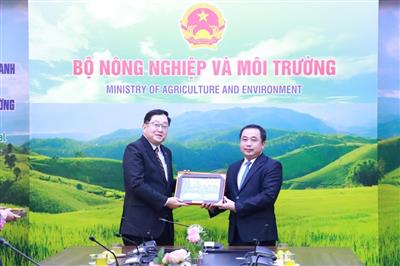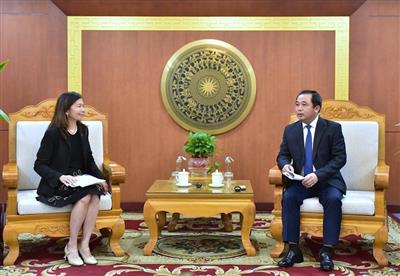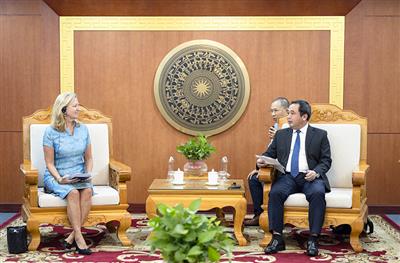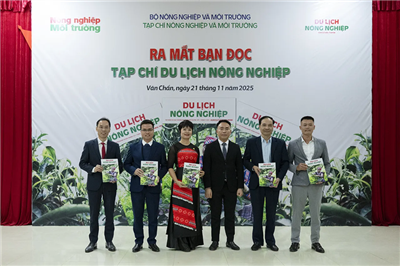
International cooperation: A key to protecting water resources in the Mekong River basin
21/03/2025TN&MTInternational cooperation plays a crucial role in addressing the challenges of climate change and water resource management in the Mekong River Basin. This message was emphasized by Minister of Agriculture and Environment, Do Duc Duy, during his meeting with Ms. Busadee Santipitaks, CEO of the Mekong River Commission (MRC) Secretariat, on March 20.
Challenges facing the Mekong Delta
During the meeting, both sides discussed key issues related to water resources, environmental protection, and cross-border collaboration. Minister Do Duc Duy underscored the importance of strengthening cooperation among MRC member states to safeguard water resources, promote sustainable agriculture, and improve resource management. As the Permanent Vice Chairman of the Vietnam Mekong River Commission, he reaffirmed Vietnam’s commitment to fostering stronger regional and international partnerships to address these pressing concerns.
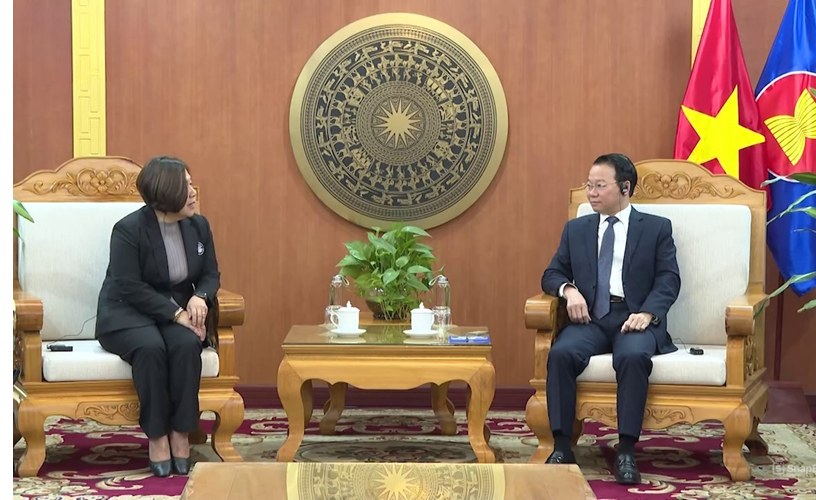
Minister Do Duc Duy receiving Ms. Busadee Santipitaks, CEO of the Mekong River Commission (MRC) Secretariat
Ms. Busadee Santipitaks highlighted the growing complexity of environmental and water resource challenges in the region, exacerbated by climate change. She emphasized the need for stronger information-sharing mechanisms and joint initiatives to ensure effective solutions.
Minister Do Duc Duy provided an overview of the severe challenges facing Vietnam’s Mekong Delta, which has experienced dramatic environmental changes over the past 15 years. Natural disasters such as flooding, land subsidence, drought, and saltwater intrusion have become more frequent and severe, significantly affecting agriculture and local livelihoods. These changes result from three main factors: reduced upstream water flow in the Mekong River, socio-economic development in the region, and the growing impact of climate change.
To address these challenges, the Vietnamese government is developing a comprehensive disaster prevention and climate adaptation strategy for the Mekong Delta. This initiative aims to strengthen regional resilience and ensure sustainable development through a combination of policy measures, infrastructure investments, and international cooperation.
Strengthening cooperation for sustainable water management
Minister Do Duc Duy proposed several key areas for enhanced cooperation with the Mekong River Commission (MRC) to ensure more effective and sustainable water resource management in the region. His recommendations focused on improving disaster forecasting and early warning systems, investing in monitoring infrastructure, and expanding international partnerships.
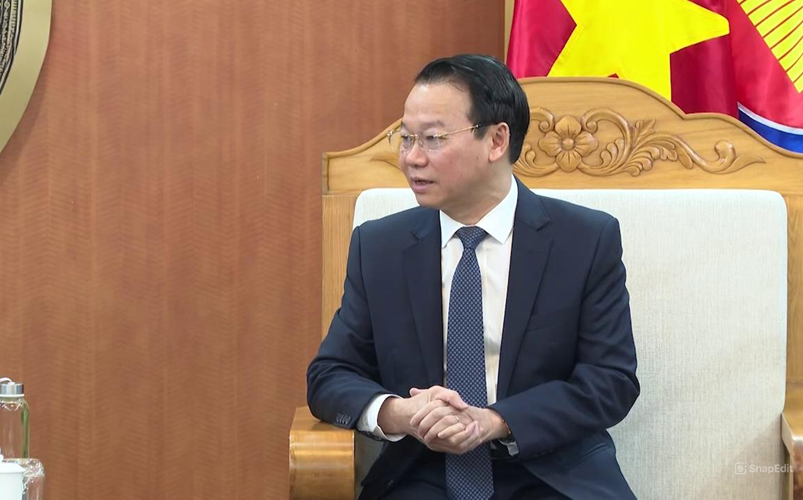
Minister Do Duc Duy proposed several key areas for enhanced cooperation with the Mekong River Commission (MRC) to ensure more effective and sustainable water resource management in the region.
One of the key priorities highlighted by the Minister was the need to improve disaster forecasting and early warning systems. While Vietnam, Thailand, Cambodia, and Laos have already established early warning networks, Minister Do Duc Duy emphasized the importance of increased cross-border collaboration. By improving predictive models and enhancing regional data-sharing mechanisms, countries can develop more accurate and timely disaster response strategies, ultimately reducing the impact of extreme weather events and climate-related disasters.
In addition to early warning systems, the Minister stressed the necessity of investing in monitoring infrastructure and data systems. He highlighted the importance of modernizing hydrometeorological and environmental monitoring stations across the Mekong River Basin. By strengthening data collection and analysis capabilities, countries in the region will be better equipped to assess environmental risks, make informed policy decisions, and develop proactive solutions to emerging challenges related to water resource management.
Furthermore, Minister Do Duc Duy called for expanding international partnerships beyond ASEAN to strengthen regional water governance. He proposed that the MRC engage with a wider range of global partners to develop comprehensive water management plans and climate adaptation strategies. Strengthening high-level dialogues and fostering cooperative mechanisms would enhance MRC’s ability to support sustainable water governance, ensuring long-term environmental stability and resilience for the Mekong River Basin.
Commitment to regional sustainability
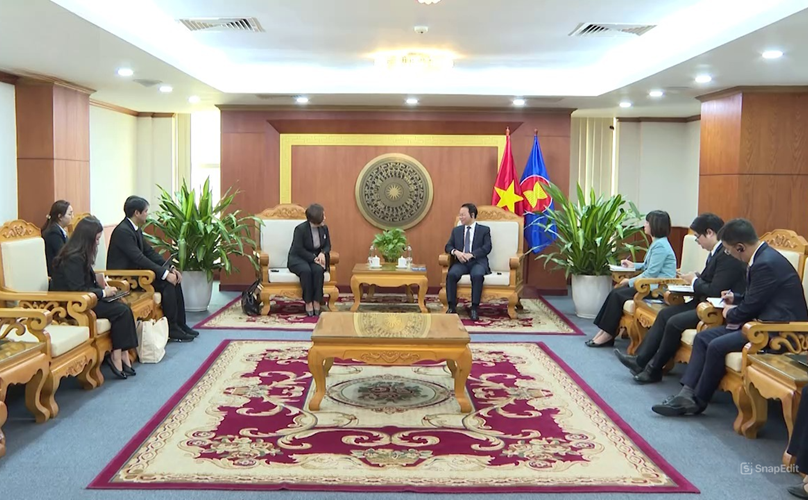
Minister Do Duc Duy called for expanding international partnerships beyond ASEAN to strengthen regional water governance
Ms. Busadee Santipitaks praised Vietnam’s strategic vision and acknowledged the importance of data-driven decision-making in managing water resources and mitigating climate risks. She agreed that strengthening forecasting models and expanding international cooperation would be crucial in addressing future challenges.
Both parties reaffirmed their commitment to fostering continued dialogue on disaster response, sustainable water management, and regional development. The Mekong River’s future depends on strong collaboration among MRC member countries and international stakeholders. Strengthening these partnerships will be key to overcoming the region’s water security challenges and ensuring long-term sustainability.
PV




